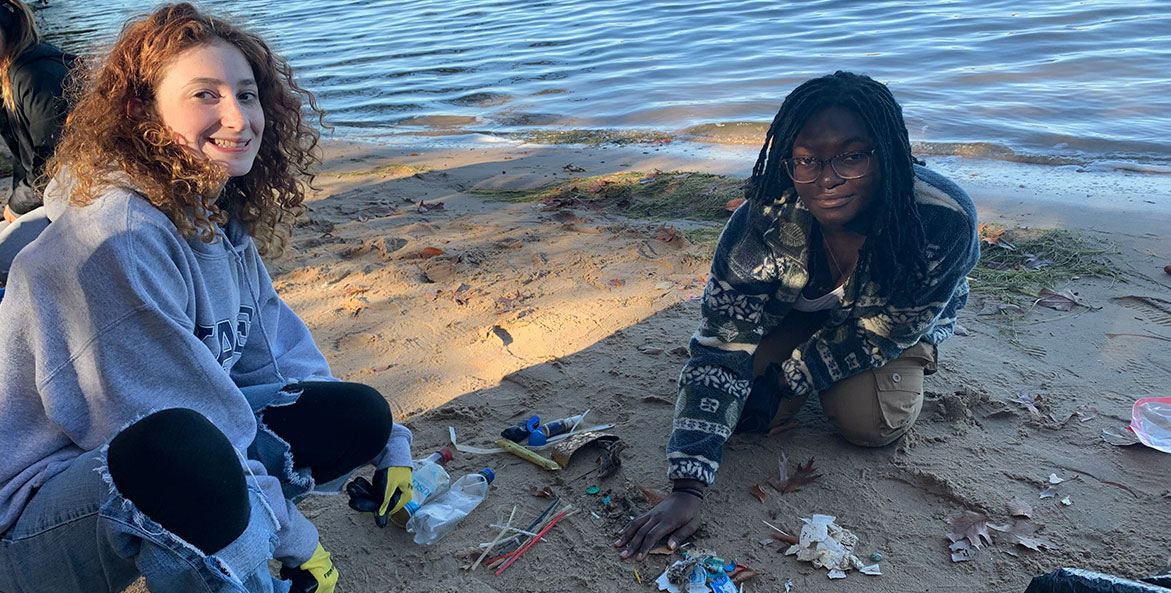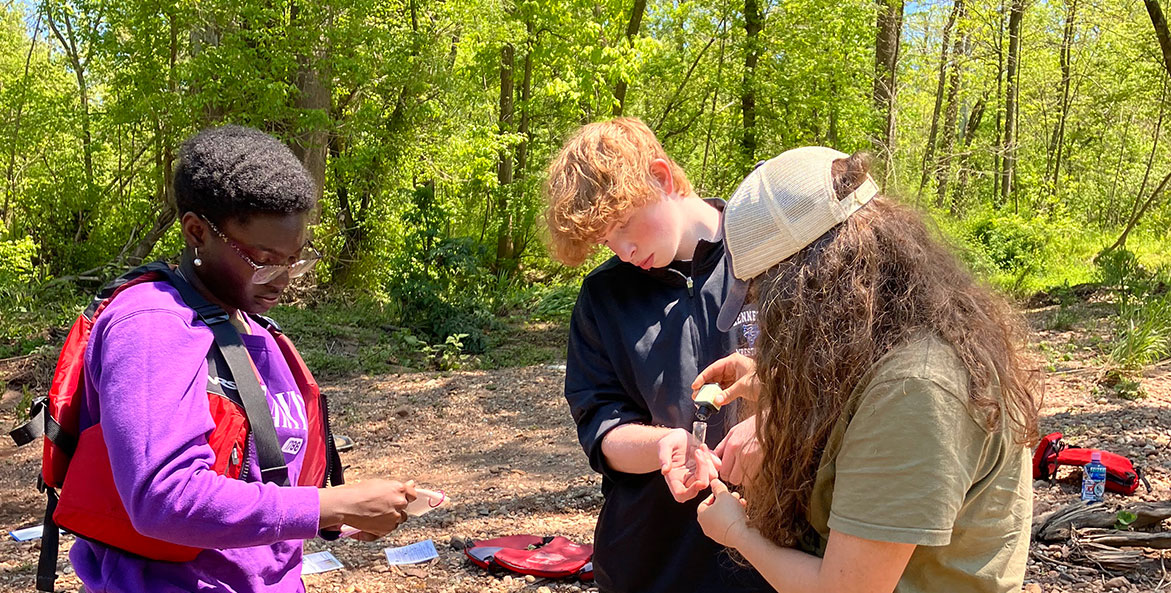I recently graduated from Poolesville High School in their Global Ecology Program where I was blessed with the opportunity to essentially major in environmental sciences and social sciences on a high school level. One of the greatest things the program offered me was its long-standing connection with the Chesapeake Bay Foundation and its Student Leadership (SL) program. If you’ve ever been on a SL trip then you know that they say you could throw a stone and hit about five Global Ecology Program kids. Honestly its influence on our community and its influence on me cannot be taken for granted.
As the oldest child and a first generation African American, living in such an affluent and successful state [Maryland], I definitely felt the pressure to succeed growing up. And while I’m never one to back down from a challenge, at times I had feared I'd flown too close to the sun trying to continuously achieve and excel to keep pace with what was expected of me. On top of that I was a very outdoorsy kid—I’d fish for frogs at summer camp and track leaves and dirt into the house, something I'm sure my mother was never fond of. But I think that gave me the foundational ambition that other students don't always have the opportunity to have. I think there was a big disconnect for me with finding my place in my career and finding my place within my personhood.
However, within the SL program I didn’t have to soar. Rather, I planted roots. The contradiction between "success" and naturalism was brushed away. Instead, I was called to discover, explore, and reflect. CBF’s Student Leadership program exposes students to the various intersections through which they can support and engage with the environment.
A common coming of age story I tell about myself is when I took part in my first summer expedition with CBF, held at the Philip Merrill Environmental Center. We had an environmental lobbyist come speak to the students one day, and she sat us in a circle and talked about her work and her passion. I think that really invigorated me towards my own path and what I wanted to be in the future. I remember waking up the next day on that beach with the sunrise and feeling like I had become a new person.
From there I’ve been inspired by landmark publications like Toxic Wastes and Race in the US, 1987, that illustrate science's power to turn community anecdotes into pressing cases for change. And with the program's help I’ve continued to work towards my dream of making a similar impact.

CBF Student Leaders Bri Akuamoah-Boateng (right) and Story Witenstein (left) sorting through trash they found on the beach during a weekend Student Leadership summit in Prince William Forest Park, Virginia
Rick Mitler
It wasn’t just a career path the SL program gave me; it also fostered a sense of exploration. I remember on a trip to Prince William Forest Park we were searching for an old graveyard in the dark, and the flashlights were all dimming. We really couldn't see anything in front of us and the maps were very outdated. We didn’t know where we were and we struggled to find our way back to camp. But I think just being there with a group of students that I had only met that morning, to have half of them holding on to me while they were jumping at each unfamiliar sound in the dark, was a great moment to realize that exploring the environment really does give you more than you can give it.
We’re often given a chance to reflect upon that, like one night when we were at the Port Isobel Island Environmental Education Center, sitting on the shoreline, practically watching the island sink around us and letting the water suck us in. We know that it’s not unlike other islands in the Bay—like Smith, Tangier, and Fox—that are all going under. But there we were, singing songs and eating smores, just enjoying what the world had to give us, and wondering whether or not other student leaders would be able to do the same in the future. I think that alone is a testament to and still resonates as a serious call to action for us to protect the environment.
That is the Student Leadership program's influence. When you are taught to discover, explore, reflect upon, and most importantly, love the world around you, you will always find yourself called to protect it. We need students involved, not just involved, but platformed in this work for any chance of change to form. And we need them instilled with environmental values as they intersect with every aspect of our lives.
I really have learned so much during my experience as a Student Leader. It has taught me how to speak for the trees, if you will, and to teach others how to do the same. I’ve had multiple opportunities to reach back to rising student leaders and talk to freshmen about what they can accomplish with their experiences here. I think that kind of push and pull to connect generations together should be harnessed to help create change. Now as I'm off to study environmental policy and studio art at Middlebury College, I know that I am rooted in this work and the future that we can create.
Inspired by Brianna’s experiences? Learn more about how you can get involved in CBF’s Student Leader program and clean water advocacy.
Brianna Akuamoah-Boateng, CBF Student Leader



